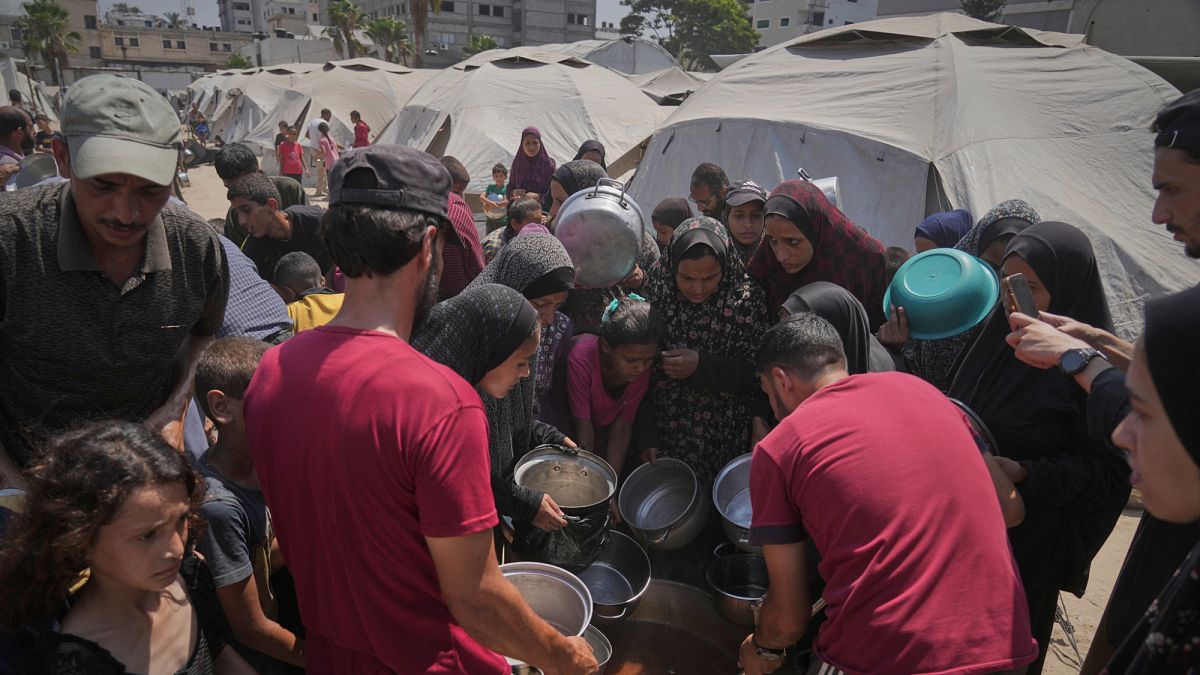

Amidst the ongoing conflict in Gaza, a humanitarian emergency is rapidly developing, as the region faces intensified hostilities and increasing calls for relief and protection from the global community. The escalating violence has led to a dire situation for many of the Palestinian civilians caught in the crossfire, causing significant international concern.
Recent footage has drawn attention to the plight of families forced to live in tents within the remains of a bombed football stadium in Gaza City. This follows relentless Israeli airstrikes, which have left substantial parts of the city heavily damaged. The stadium, once a center for sporting activities and community gatherings, now serves as a makeshift shelter for those displaced by the violence, highlighting the desperate need for secure housing and humanitarian assistance.
The situation further escalated as the World Health Organization (WHO) detailed Israeli attacks on its facilities located in Deir al-Balah. The organization reported that its staff accommodations and main warehouse were stormed, leading to the evacuation of women and children. The WHO has expressed grave concern over the safety of its facilities and personnel, calling for an immediate ceasefire to prevent further endangerment of both humanitarian workers and those in need of medical assistance.
In response, the UK has issued statements condemning the suffering experienced in Gaza, suggesting that more measures may be considered in the coming days. British Foreign Secretary David Lammy emphasized the need for humanitarian aid to be allowed unimpeded into the region, and further discussions are anticipated regarding potential actions to address these restrictions effectively.
Amidst these developments, global condemnation of the violence has been growing, with senior international figures, including UN Secretary-General António Guterres, highlighting the potential collapse of essential aid lifelines within Gaza. The UN and various international organizations have been voicing their alarm over the situation, stressing the urgency of addressing the humanitarian crisis to prevent further loss of life.
The impact of the conflict has been acutely felt on the ground, with reports indicating that at least 72 Palestinians have lost their lives in the past 24 hours due to ongoing hostilities. These casualties are a stark reminder of the conflict’s human toll, with many of those affected being among the most vulnerable, including children and those already facing malnutrition and deprivation.
Medical professionals, including volunteers working with Medical Aid for Palestinians (MAP), have been tirelessly tending to those affected by the crisis. Accounts from field hospitals, such as Nasser hospital in southern Gaza, describe harrowing scenes of malnourished children fighting for their lives, testimony to the severe humanitarian conditions exacerbated by restricted access to basic necessities.
The international community continues to monitor the situation closely, advocating for a peaceful resolution and the provision of immediate relief to alleviate the suffering of those trapped within the conflict zones. The consensus underscores a shared commitment to ensuring safe passage for humanitarian aid and fostering conditions conducive to dialogue and peace.
As the world turns its gaze toward Gaza, the urgency for diplomatic and humanitarian interventions remains clear. The collective efforts to address the pressing needs of the people of Gaza strive to pave a path toward stability and reconciliation for a region yearning for peace and recovery.
Source: {link}
